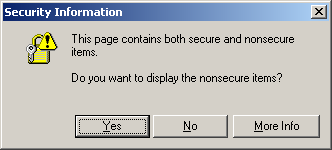On August 6, 2014 Google announced that it has started using sites that use HTTPS as a ranking signal. As of this post they are using it at a “lightweight” signal affecting few than 1% of global queries and carrying less weight than other signals. Where the announcement gets interesting to us is the following statement “But over time, we may decide to strengthen it,…”. How will this affect your ranking?
To me, this is a big warning sign to get your website on HTTPS quickly. It will be important to ask your SEO consulting company if they are going to help you in getting to an HTTPS website. Aside from the security aspect of HTTPS, there is a lot of other value in Google using HTTPS as a more powerful ranking factor. What does it take to have an HTTPS site?
- A dedicated IP address
- Purchased SSL certificate ($50/year and up)
- Configuration changes to your website
These requirements may not seem complex but we believe there is a tremendous amount of potential in how it can easily weed out “poor” websites and/or webmasters not committed to their website.
Think about it, Google’s biggest goal is to provide you with the most relevant content and reward those websites and websites owners committed to their websites and making the best possible experience for the search user. Just like engagement on Social Media is/will be a strong signal in our opinion (more on that later), HTTPS properly setup on a website means the owner has committed additional yearly money to getting an SSL certificate, procured or reserved a dedicated IP address and has put the legwork in to make sure it is configured on the website appropriately.
Downside of HTTPS
HTTPS isn’t all rainbows and flowers, there is some downside.
- Website loading speeds – Adding SSL to a website adds overhead to the website and thus how fast the page can load. A slow website will be slower.
- Configuration – This can be the most frustrating for webmasters. When a website uses SSL every element on that page must be protected by SSL or it results in a warning. Look familiar? Every browser has its own variation of the warning but no matter how you slice it, it isn’t the best user experience.

- Cost & Renewals – Although the initial cost is fairly trivial (~$50), you have to pay that each year and renew it each year. If they are not well managed, SSL certificates are easy to let expire they have to be kept current. There is also a very real cost for implementing HTTPS. For some sites it may be easy, for others it may be a real commitment to get a programmer to make the necessary configuration changes to be secure and error free.
Believe it or not, although we don’t own stock in GoDaddy (stand to make a lot of money on SSL and dedicated IP address sales), we are excited about this change. Getting our sites to HTTPS is another easy checkbox to mark off of our SEO ready checklist for our customers. Its a super easy and straightforward way to be distinguished and hopefully preferred in Google’s Eyes versus the competition.

